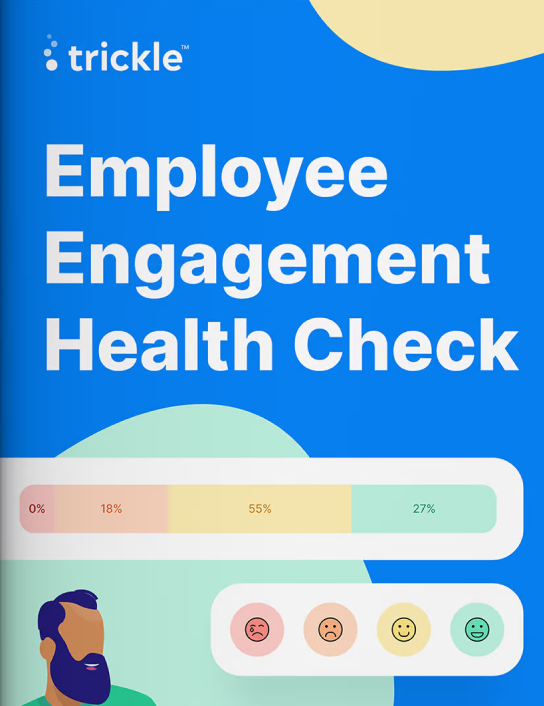How well does your company engage its employees?
Take your health check and find out.


Talking about mental health can be challenging for some at the best of times, and it can be even harder discussing it at work. Often people aren’t comfortable opening up or don’t know what to say if someone approaches them, which can make people feel compelled to compartmentalise their worries.
Research from The Economist has found that poor mental health is costing UK employers between £33 billion and £42 billion a year.
But how do we break the stigma to ensure people feel comfortable, listened to and supported when talking about mental health at work? Here are our top tips:
Be an active listener
When someone reaches out, perhaps to speak about their wellbeing, it’s vital that you actively listen to them, respond appropriately, and give them your undivided attention.
This starts with having the conversation in the right environment. For example, you might want to pop your phone on silent or if you’re in-person, find somewhere where interruptions will be minimal such as nipping out for a walk together or going out for a coffee.
When having the conversation, you can show you are actively listening with small verbal comments like ‘I see’ or ‘what happened next?’. While it’s helpful to show empathy, it’s important to be attentive to their body language to make sure you aren’t being overbearing, which could have the opposite effect.
Ask open ended questions
Open-ended questions are an effective way to encourage someone to share their thoughts and give them the choice to share as much or as little detail as they want. You might want to ask questions such as:
Avoid cliches
It’s understandable as a listener to be lost for words at times, especially if you aren’t sure what to say to someone who has shared something very sensitive with you.
But it’s best if you can avoid offering up mental health cliches, as they can leave the person feeling even more upset.
Comments of this nature are not helpful and are likely to encourage the other person not to speak up again or feel worse for having been vulnerable in the first place.
If you find yourself unsure how to proceed or at a loss for words, try saying something empathetic or comforting such as:
Bear in mind that when someone wants to share with you, it’s less about what you say and more about showing up, being present and actively listening.
Reassure them
People often feel vulnerable when discussing their mental health, so if someone reaches out for support, let them know that it’s a positive step forward. For them, knowing that it’s okay to speak up about mental health issues or that it’s normal to sometimes not be okay can really help someone feel comfortable bringing their whole self to work.
Positive reinforcement can help to increase their sense of psychological safety at work and may encourage them to engage more with you in the future.
Foster a workplace culture that supports wellbeing
Supporting and championing mental health at work has never been more important, so organisations are actively encouraged to adopt a culture of openness that enables people to talk about their mental health. In fact, our CEO Paul Reid shared his thoughts on why mental health should be a global priority on World Mental Health Day.
The Trickle platform provides a psychologically safe space for organisations to connect with their people, highlight ideas and give everyone a voice.
With Trickle’s MoodSense feature you understand how your people feel about something at any moment in time. Answers are always anonymous, allowing people to share how they really feel about something without fear of judgement or repercussions.
The Flares feature in the Trickle app allows people to seek private and confidential support from a selected individual or group of people. Flares are always private and those raising Flares can choose to remain anonymous.
If you’d like to find out more about how Trickle can support your people, why not book a 30 minute demo with one of our friendly team?